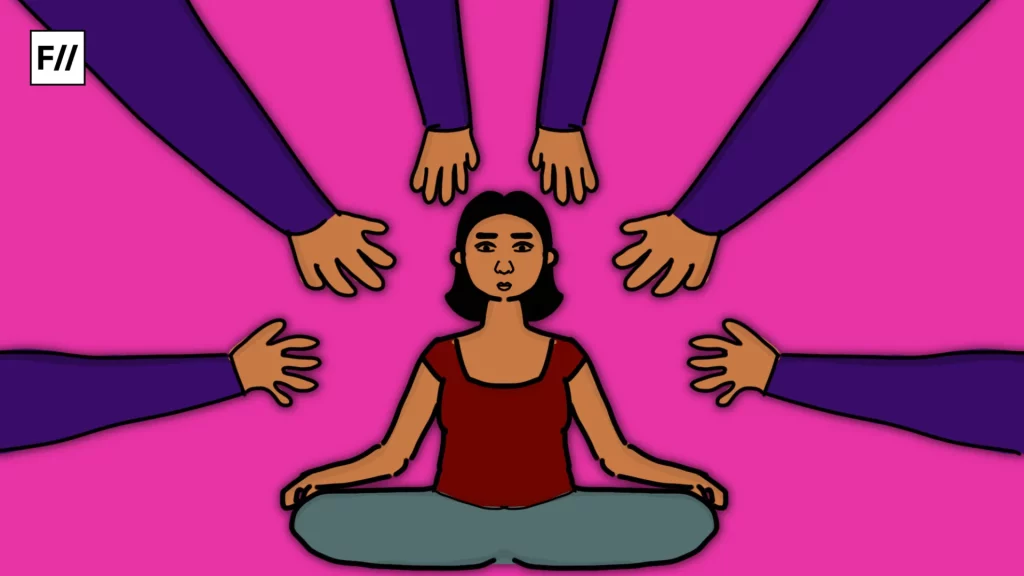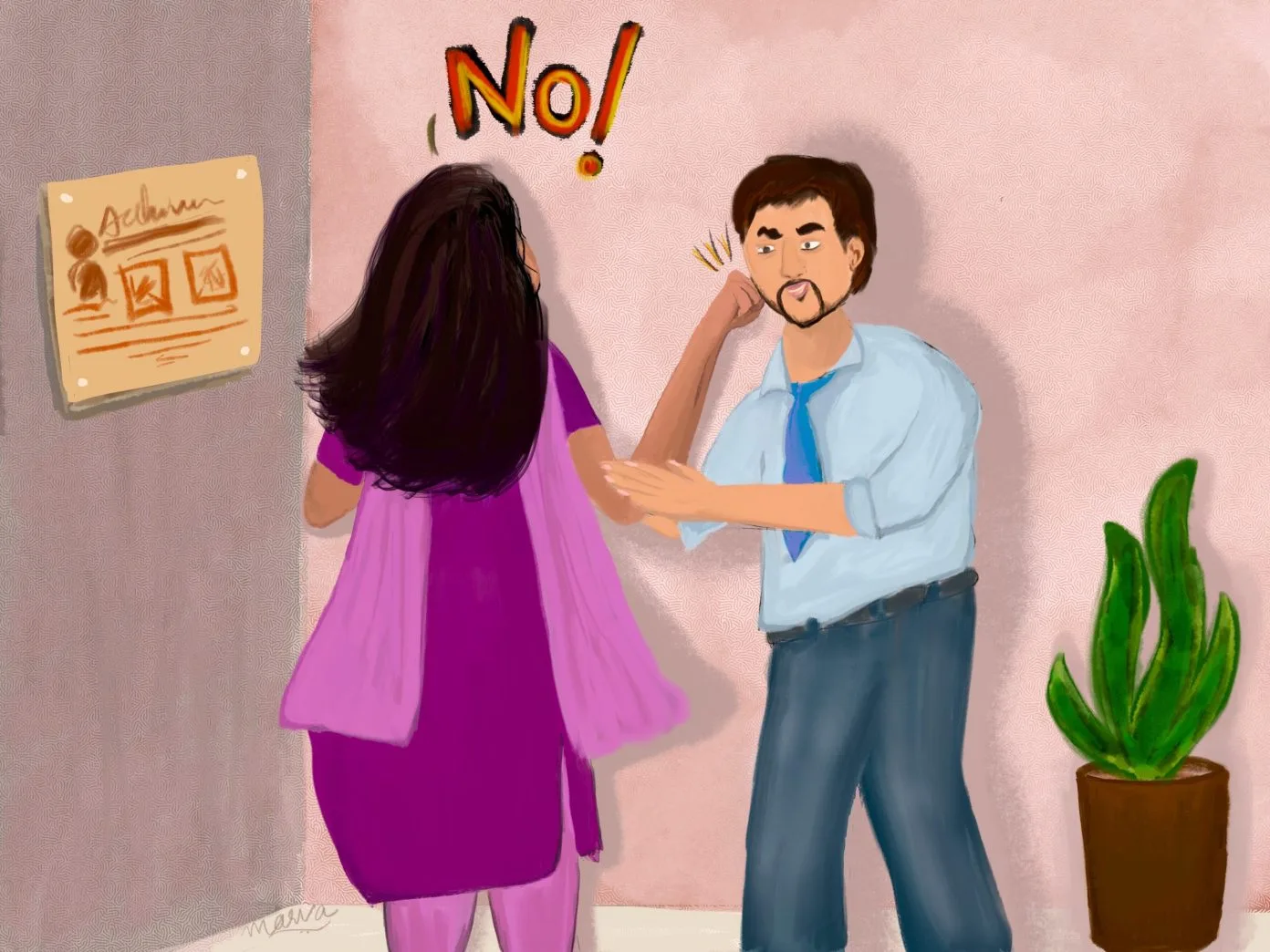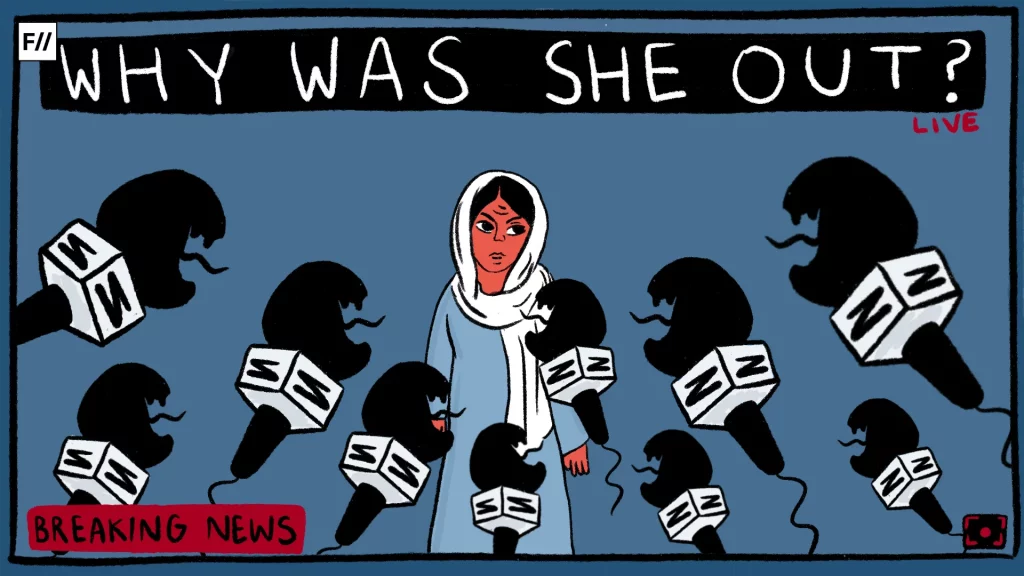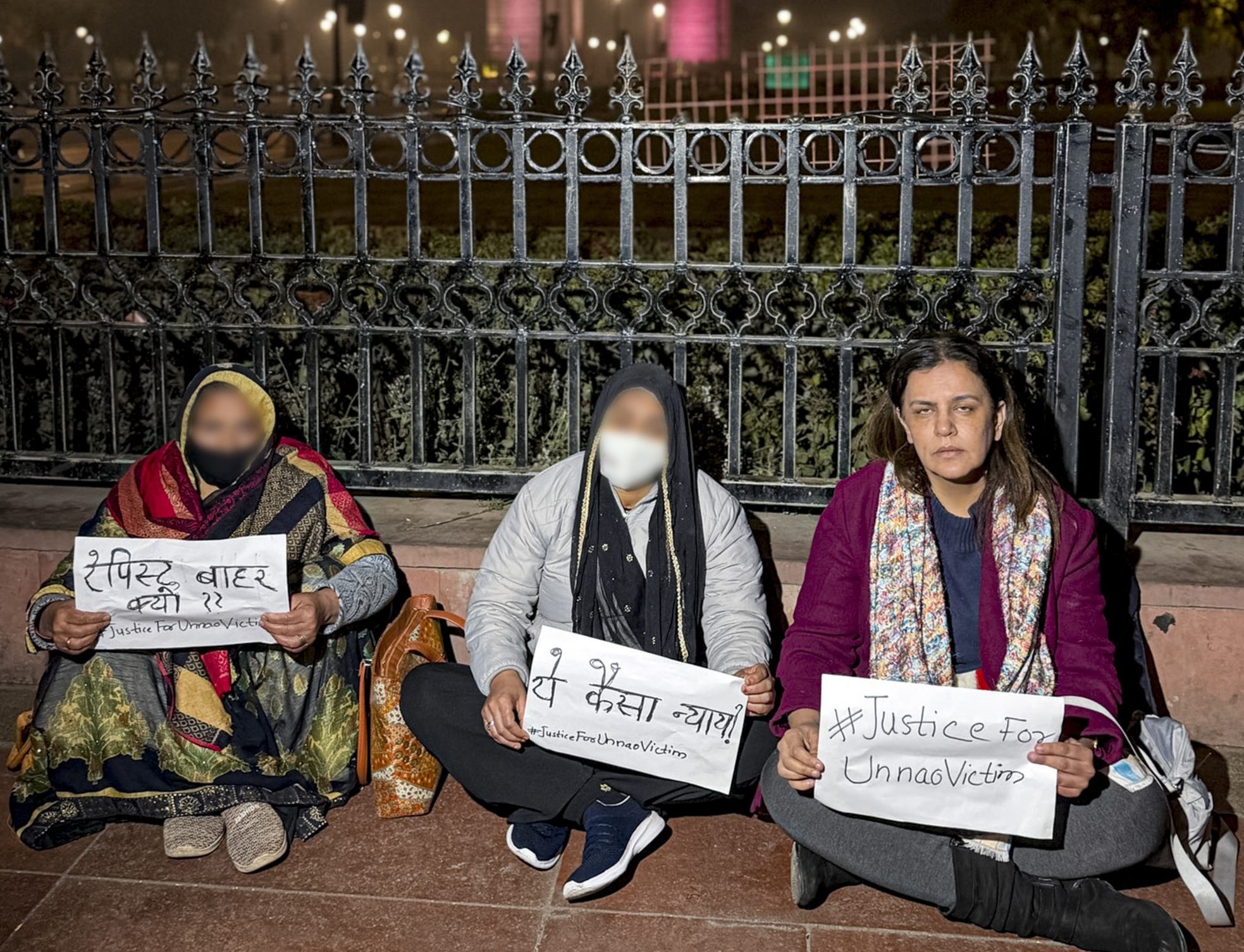Victims of sexual violence face numerous barriers in accessing justice; they are routinely failed by society and institutions. However, ‘Marry-your-rapist’ laws and the ubiquity of the practice of marrying rapists off to their victims – for reduced sentences or complete exoneration – in some parts of the world, are perhaps the most egregious of these failures and one of the most damaging manifestations of the institutionalized patriarchy that pervades our social, institutional, and political fabric. The continued existence of this archaic and damaging practice is a testament to the complicity of all systems and institutions in fostering, reinforcing, and steadfastly upholding patriarchal frameworks.
‘Marry-your-rapist‘ laws allow perpetrators of sexual violence to avoid prosecution, be exonerated, or have their guilty verdicts overturned if they marry their victims. According to the last available UNFPA data from 2021, twenty countries across the globe continue to have such legislation on their books. While these laws were popular in the twentieth century, many countries began to repeal them starting in the 1970s. In 2017, a majority of the countries still retaining such a law, located predominantly in the Middle East and Northern Africa, repealed them.

Where these laws exist, they extend to cases of statutory rape as well; i.e., sexual violence committed against minors. Rapists who marry their victims upon the latter attaining majority have their convictions vacated. Lebanon is one such country. While the country repealed a ‘marry-your-rapist‘ provision in their penal code in 2017, it retained two provisions that allow perpetrators to avoid prosecution by marrying their victims, provided the victim is between the ages of 15 and 18, and had consented to the sexual act or if a promise of marriage was made prior to it (There is no such thing as consensual sexual activity with children; children cannot consent to any form of sexual activity, and any consent obtained is immaterial).
Virginity is a social construct. While it is often misleadingly presented as a medico-biological concept, the notion of virginity has no scientific merit. Women’s social value in patriarchal societies has historically been tied to their status as virgins before marriage. To preserve their virginity till marriage, families and societies can keep them out of public life and exert immense control on them, essentially ostracising them.
These marriages are often called “restorative marriages” and can trace their origin to patriarchal ideas regarding ownership of women and the emphasis placed on virginity and associated notions of “purity”. While such legislation might seem like an outlier, a quirk of the law from another time, their roots in patriarchy make their continued existence today an inevitability. It’s simply a manifestation of unchecked institutionalized patriarchy, which, upon closer look, plagues the legislative and legal spheres in all countries across the globe to this day.
The patriarchal origins of ‘Marry-your-rapist’ laws
Virginity is a social construct. While it is often misleadingly presented as a medico-biological concept, the notion of virginity has no scientific merit. Women’s social value in patriarchal societies has historically been tied to their status as virgins before marriage. To preserve their virginity till marriage, families and societies can keep them out of public life and exert immense control on them, essentially ostracising them. Virginity’s impact on marriageability also makes it important for the honour of a family and community, which, thus, further incentivizes social institutions to control women. And this is not just a phenomenon of the past; it exists to this day.

This obsession with virginity meant that sexual assault reduced the social value of women and dampened their marriage prospects. Ideas of the ownership of women, combined with this, paved the way for ‘marry-your-rapist‘ laws. For much of history, women were viewed as the property of fathers, to be passed on from them to spouses, which is why sexual assault wasn’t considered a crime against the victim but against the property of her father. In this context, ‘marry-your-rapist’ laws began to be viewed as appropriate “compensation” for the father for his losses borne by the diminished social value of his daughter, which brings ignominy and disrepute onto him and his family.
A preoccupation with virginity since antiquity
Rules mandating that rapists marry their victims — “whose social value has diminished” due to being assaulted and whose marriage prospects have vanished — were a norm since antiquity. The first definite mentions of such a law can be found in the Middle Assyrian Laws developed between 1450 and 1250 BCE. The law in cases of sexual violence against virgins prescribed punishment as the victim to be married off to the perpetrator, if her father so chooses.
Further, the perpetrator’s wife will be punished with sexual assault and will be seen as the victim’s father’s property thereafter. Subjecting the perpetrator’s wife to sexual violence and treating her like the property of the victim’s father – while the perpetrator receives no punishment – essentially employs a principle where the perpetrator compensates for the father’s damaged property by giving up his own, showing women’s status as property and their dehumanizing commodification in the patriarchal imagination.
Though ‘marry-your-rapist’ laws now only exist in a tenth of the countries in the world, the absence of such a law doesn’t always translate to the end of such practices. In India, the practice is still encouraged by families, societies, law enforcement, and courts, and while there is no explicit provision for reduced sentencing or exoneration, in effect, rapists who marry their victims can evade justice.
In some countries across the globe, legal provisions surrounding sexual violence still operate with an emphasis on virginity. In Iraq, for instance, the law surrounding rape considers the rape of a virgin an aggravating circumstance and has a provision for compensation in such cases. Women being subjected to such petty objectification results in their worthiness for receiving justice after sexual violence being determined by their value in the patriarchal imagination, which is based on the performance of female respectability.
De facto practice in the absence of such laws
Needless to say, being married to rapists is damaging to victims in a myriad of ways. The threat of further sexual violence, domestic abuse, and psychological harm are a very real prospects. Though ‘marry-your-rapist’ laws now only exist in a tenth of the countries in the world, the absence of such a law doesn’t always translate to the end of such practices. There is a gulf between de jure provisions and de facto practices. In countries like India, Ethiopia, Afghanistan, and Somaliland, where no such laws exist, the practice still continues.

In India, the practice is still encouraged by families, societies, law enforcement, and courts, and while there is no explicit provision for reduced sentencing or exoneration, in effect, rapists who marry their victims can evade justice. Convicted or undertrial rapists are often granted interim bail solely for the reason of marrying their victims. There is a great degree of institutional complicity at play in keeping the practice alive, even in the absence of any provisions in statutory law. It is also an example of one of the worst ways in which institutionalized patriarchy can manifest and harm women, and the devastating effects of unchecked institutional misogyny.
“Marry-your-rapist” in the Indian scenario
In March of this year, the Allahabad High Court granted bail to a man accused of rape and extortion, on the condition that he will marry the woman he raped within three months and not tamper with any evidence. This, unfortunately, is not an anomaly and is only one of numerous such cases. In 2021, then Chief Justice of India S A Bobde made an outrageuos remark suggesting a rapist marry his victim, a school-going child at the time of the crime, who he also threatened to murder. During a hearing, he said, ‘If you want to marry [the victim], we can help you. If not, you lose your job and go to jail.’ The victim’s family was initially convinced against going to the police by the perpetrator’s family, who assured them they would have the rapist marry the victim, a promise they later backtracked on.
Even in cases of statutory rape, perpetrators are encouraged by families, panchayats, and even law enforcement to marry the victim upon her attaining majority. Months before the above-stated Allahabad High Court decision, the same court granted bail to another accused, on the condition that he marry the victim – a child he raped at the age of fifteen – now that she had attained majority. The counsel for the defendant asserted that the victim had consented and no force was applied.
In 2021, then Chief Justice of India S A Bobde made an outrageuos remark suggesting a rapist marry his victim, a school-going child at the time of the crime, who he also threatened to murder. During a hearing, he said, ‘If you want to marry [the victim], we can help you. If not, you lose your job and go to jail.’
While discretion might be applied in cases of statutory rape where both parties are minors or only have a legally insignificant age gap, to make marriage a condition of bail sets a dangerous precedent. The Court also cited potential stigma faced by the child as a reason for its pronouncement, essentially upholding conservatism at the cost of the victim’s best interests.

Earlier this year, a man arrested under the Protection of Children from Sexual Offences Act, 2012, for committing statutory rape, was granted interim bail on ‘the basis of being consensual’ by the Orissa High Court for marrying the victim, who is now an adult. In his bail petition, he stated that both families had agreed to this marriage. In any legal standard, such consent obtained after the assault has no legal standing and doesn’t make the charge of statutory rape any less severe. However, this trend of basing the grant of bail petitions and enabling the practice of marrying a rapist on the supposed “consent” of a child, is a product of the patriarchal notions pervading our institutions. Numerous such cases exist where families, communities, and courts pressure victims into such marriages, to the detriment of the victim.
Even though orders to halt criminal proceedings weren’t granted in any of these cases, it would be naïve to believe the matter is going to be pursued further. Most cases of sexual violence rely heavily on testimony from the victim to secure convictions; to expect a victim to provide damning testimony that will put her now-husband in prison is preposterous, and is essentially a way to create loopholes in the practice of law when there are none in statutory law. By deliberately creating a conflict of interest, where the victim’s social and economic interests are married to the perpetrator’s, the practice disincentivizes victims from pursuing these cases or cooperating to have their rapists convicted.
While the repeal of ‘Marry-your-rapist‘ laws across the world since the turn of the century might provide a sense of optimism in strides being made for women’s rights; scrapping a law doesn’t translate to such practices automatically being abandoned. Further, these positive legislative landmarks still face the threat of being scaled back as authoritarianism – and consequently conservatism and traditionalism – spread across the globe. Turkey, for instance, which had repealed its ‘Marry-your-rapist’ laws in 2005, attempted to reintroduce these provisions in cases of statutory rape in August 2024. The existence of the practice is not only a threat to justice and a failure to victims, but it reinforces rape culture and normalizes sexual violence by minimizing it into a petty crime, where justice is negotiable and exoneration can be bargained and bartered for.
About the author(s)




